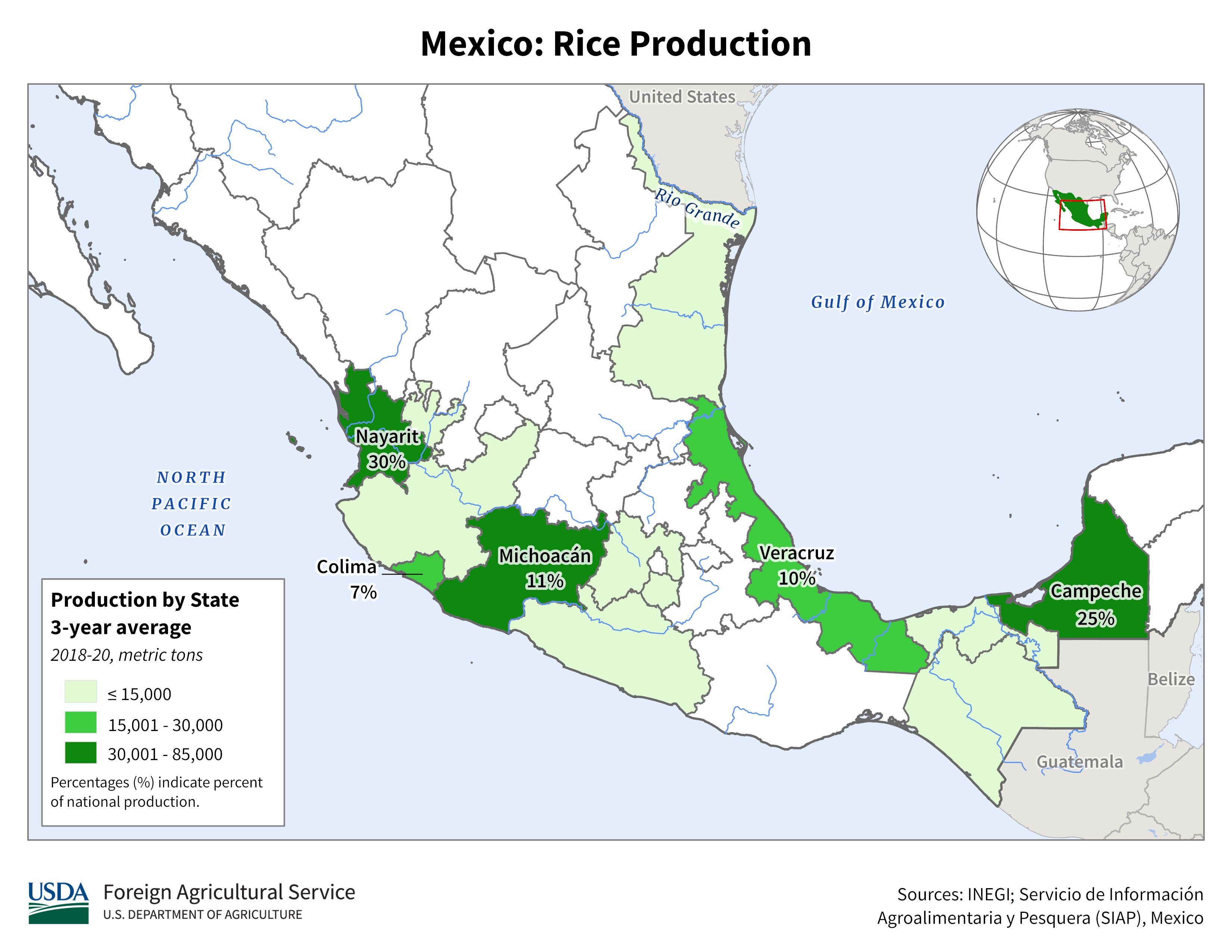They'd probably make their own pita-like flatbread as an analogy from tamales.
Would this be available to the Spanish at this time? Also as far as I can see Mexico doesn't grow upland dry rice now, presumably because they've already got their own crops for dry upland regions.
@Vinization you might appreciate
this website showing where crops are grown today, it's pretty informative. Here's rice in Mexico:
Apparently this isn't enough for Mexican consumers and 60% of their rice is imported by the way.
